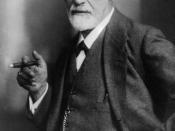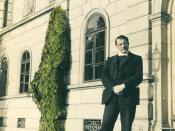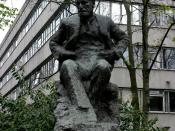The psychological genre as it relates to sociological and medicinal matters has gained an increasing amount of scientific approval. Impartiality and the scientific method are both integral components to a psychologist's mode of practice. However, even the most esteemed of psychologists can only speculate at what makes human beings act the way they do. Absolutes play no function in psychology. Everything is relative and open to conjecture. Theologians give us their visions or thoughts about life. In the field of psychology, there have been many different regions of interest and speculation. Psychoanalysis has been the pinnacle of arenas to examine within the vast field of psychology. Psychoanalysis has been an area that Carl Jung has explored, critiqued and perfected in his lifetime. Jung was not alone in his exploration of the psyche; there were many other psychoanalytic perspectives as well. Carl Jung was said to have been a magnetic individual who drew many others into his circle.
Sigmund Freud was Carl Jung's greatest influence. Although he came to part company with Freud in later years, Freud had a distinct and profound influence on Carl Jung's psychoanalytic perspectives, as well as many others. Within the scope of analytic psychology, there exist two essential tenets. The first is the system in which sensations and feelings are analyzed and listed by type. The second has to do with a way to analyze the psyche that follows Jung's concepts. It stresses a group unconscious and a mystical factor in the growth of the personal unconscious. It is unlike the system described by Sigmund Freud.
Analytic psychology does not stress the importance of sexual factors on early mental growth. The best understanding of Carl Jung and his views regarding the collective unconscious are best understood in understanding the man and his influences. In keeping...


